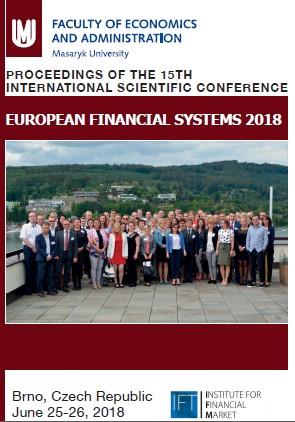Methodical Approaches to the Formation of Model Budgets in order to Improve the Effectiveness of the Budget Process in Russia
Methodical Approaches to the Formation of Model Budgets in order to Improve the Effectiveness of the Budget Process in Russia
Author(s): Nadezhda Yashina, Natalia N. PRONCHATOVA-RUBTSOVA, Sergey Petrov, Oksana Kashina
Subject(s): Economic policy, Methodology and research technology, Fiscal Politics / Budgeting
Published by: Masarykova univerzita nakladatelství
Keywords: budget resources; effectiveness; model budget; inter-budgetary relations; integrated indicator;
Summary/Abstract: The purpose of the study is the formation of model budgets based on assessing the effectiveness of budget resources management of the territories for improving interbudgetary relations. A methodology for assessing the effectiveness of budget resources management of the territories, considering the formed indicators in order to develop the model budgets, is proposed. The integrated indicator of the effectiveness of budget resources management is adopted as a basic criterion for classifying budget stability, which will allow to determine the type of model budget for the purpose of forming inter-budgetary relations in the region. The methodological basis was the methods of economic, system analysis and mathematical statistics. The methodology has been tested on the official data of the Finance Ministry of the Nizhny Novgorod region for 2014-2016. The result of the assessment is the rating of municipalities, and two classes of model budgets are established. The first class is characterized: by high financial stability due to a growth of the distributions' norms of regulatory taxes to municipalities, increasing the share of own revenues to 80-90%, a reduction in subsidies, subventions, increased dotations, the possible growth of municipal borrowing; by norms of social standards per unit of consumers of budget services, established with an increased coefficient. The second class is characterized by sufficient financial stability of municipalities, requires a balanced approach to establishing the structure of income and financing of expenditures. This methodology will help to match the amount of expenditure obligations to the amount of disposable income and balanced budgets. The formation of model budgets will increase the responsibility of the regional state authorities and local governments for ensuring effective spending of funds, for creating a base for expanding their own revenue potential; will contribute to improving the budgetary process management effectiveness and the introduction of budgeting principles based on results.
Book: European Financial Systems 2018 - Proceedings of the 15th International Scientific Conference
- Page Range: 857-864
- Page Count: 8
- Publication Year: 2018
- Language: English
- Content File-PDF

